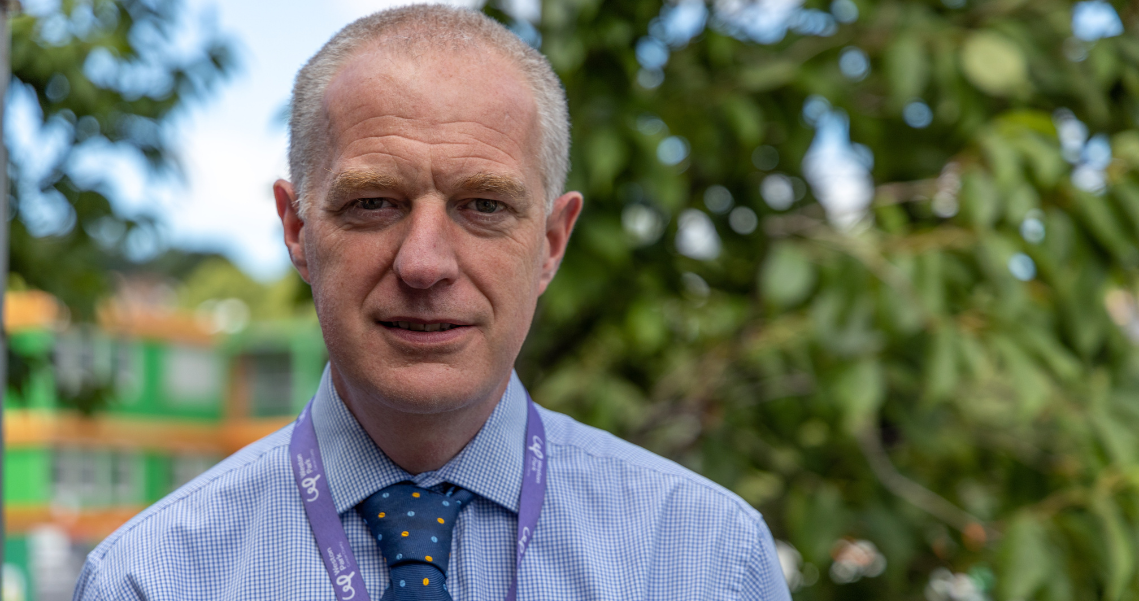Read a full transcript of this episode.
Background to this episode
“There has been huge progress in a number of cancers, so breast cancer is perhaps the best example. Breast cancer is a very common cancer, and we know as a result of studies into optimising treatments, so surgery, radiotherapy, chemotherapy, newer drug treatments, survival rates have improved dramatically over the last 30 years, and we’re now in a situation where almost 90% of women with breast cancer live five years .. Sadly though, with other cancers, such as lung cancer and pancreatic cancer , we’re doing much less well. For those cancers, we know fewer than 20% of patients survive five years. The outlook is still very poor, and there’s a need for much more research to find better treatments for those groups of patients.” Professor Jonathan Wadsley
Our guest

Professor Wadsley is the NIHR CRN National Specialty Lead for Cancer Radiotherapy and Imaging Research.
He is a Clinical Oncologist specialising in the treatment of pancreatic and hepatobiliary, thyroid and neuroendocrine tumours. Professor Wadsley undertook his specialty training in Oxford and was appointed to a consultant post in Sheffield in 2004 where he is still based. He is also Director of the Sheffield Cancer Clinical Trials Centre.
Glossary of terms
Interventional research - also known as experimental research involves making a change - or intervening - in order to see if it is beneficial or not.
Qualitative research - non-numerical information obtained from first-hand observation, interviews, questionnaires etc.
Immunotherapy - a type of cancer treatment that uses substances made by the body or in a laboratory to boost the immune system and help the body find and destroy cancer cells.
Chemotherapy - a cancer treatment which uses medicine to kill cancer cells. It stops cells reproducing, which prevents them from growing and spreading in the body.
Radiotherapy - a treatment where radiation is used to kill cancer cells.
Mentions and links
Galleri is a blood test that can detect over 50 different types of cancers with a low false positive rate of less than 1 percent. Over 47 of these cancer types lack recommended screening in the UK today. Using revolutionary next-generation sequencing technology, Galleri has the potential to identify multiple types of cancers at earlier stages of disease compared with traditional diagnostic methods, which should increase the chance of successful treatment and improve outcomes for patients. Recruitment for this study is now closed.
Disclaimer
The views expressed in this podcast are those of the author(s) and not necessarily those of the NIHR or the Department of Health and Social Care.





